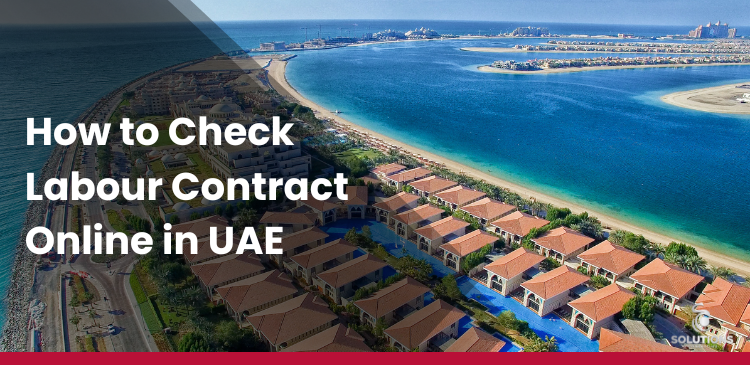Abu Dhabi, the capital of the United Arab Emirates, is a dynamic and fast-growing business hub. With its strategic location, pro-business regulations, and robust infrastructure, Abu Dhabi has become one of the most sought-after destinations for entrepreneurs and investors worldwide who are looking to start a business in Abu Dhabi.
Whether you’re looking to set up a local business, a multinational company, or a start-up, Abu Dhabi provides a diverse range of options for business formation. This guide will walk you through why Abu Dhabi is an ideal place for business setup, the benefits of establishing a company here, the different licenses available, and the steps involved in starting a business in Abu Dhabi.
Why Abu Dhabi is a Great Location for Business Setup in UAE?
Abu Dhabi is not only the political capital of the UAE but also its economic powerhouse, contributing significantly to the country’s GDP. It boasts a diverse economy that spans various sectors including oil and gas, financial services, real estate, tourism, technology, and renewable energy.
For businesses, Abu Dhabi offers a blend of modern infrastructure, highly developed logistics networks, and a central position in the Gulf, making it an ideal gateway to markets across the Middle East, Africa, and Asia.
The emirate’s government has taken steps to attract foreign investors by offering a range of incentives such as tax exemptions, 100% foreign ownership in free zones, and streamlined licensing processes.
Abu Dhabi’s stability, security, and forward-looking economic policies provide a solid foundation for entrepreneurs aiming to launch and scale their businesses. The emirate also actively promotes sustainability and innovation, fostering industries in renewable energy and technology.
Benefits of Starting a Business in Abu Dhabi
Starting a business in Abu Dhabi provides several key advantages:
- Strategic Location: Abu Dhabi’s geographical position offers access to a wide range of global markets, especially in the Middle East, Asia, and Africa.
- Economic Stability: The emirate’s diversified economy ensures long-term stability and growth, reducing dependency on oil and gas revenues.
- World-Class Infrastructure: Abu Dhabi boasts highly developed infrastructure, including ports, airports, and industrial zones, which facilitate smooth business operations.
- Tax Incentives: There are no corporate or personal income taxes in Abu Dhabi, which significantly reduces the overall cost of doing business.
- Ease of Setup: The business setup process is streamlined with a fast-track system, making it easier for entrepreneurs to establish their ventures quickly.
Abu Dhabi Mainland and Free Zones for Business Setup

Abu Dhabi offers a variety of options for setting up a business, including the mainland and several free zones. Your choice of location will depend on the nature of your business activities, ownership preferences, and target markets.
Abu Dhabi Mainland
Setting up a business in Abu Dhabi mainland allows companies to operate freely across the UAE, offering access to the local and national market. Mainland businesses are ideal for those looking to work with government contracts or serve the UAE’s local consumer base.
Some of the most popular areas in the mainland for business setup include the central business districts, Khalifa City, Mussafah Industrial Area, and Al Reem Island. These locations provide access to modern office spaces, industrial areas, and retail markets, making them attractive options for both start-ups and established businesses.
Abu Dhabi Free Zones for Business
Abu Dhabi also has several free zones that cater to different industries, offering unique benefits such as 100% foreign ownership, tax exemptions, and simplified regulations. These free zones are specifically designed to attract international businesses by providing industry-specific infrastructure and services.
1. Abu Dhabi Airport Free Zone (ADAFZ)
Located near Abu Dhabi International Airport, ADAFZ provides excellent connectivity and services for businesses in aviation, logistics, and manufacturing. It offers a range of office spaces and warehouses with easy access to global markets.
2. Abu Dhabi Industrial City (ADIC)
ADIC is a hub for industrial and manufacturing companies, offering specialized facilities and infrastructure for heavy industries, automotive, and energy sectors. Its location close to the city makes it convenient for businesses that need direct access to industrial and urban areas.
3. Abu Dhabi Global Market (ADGM)
ADGM is a financial free zone offering a conducive environment for financial services, fintech, legal services, and investment companies. With its robust regulatory framework, ADGM provides businesses with access to international financial markets and a wide range of services.
4. Khalifa Port and Industrial Zone (KPIZ)
KPIZ is one of the UAE’s largest industrial free zones, focusing on logistics, shipping, and trade. It offers direct access to Khalifa Port, making it ideal for import-export businesses and industries that rely heavily on maritime logistics.
5. KIZAD or KEZAD
Khalifa Industrial Zone Abu Dhabi (KIZAD), now also known as KEZAD, is a leading industrial zone offering a range of facilities for manufacturing, logistics, and trading businesses. It has a strategic location between Abu Dhabi and Dubai, providing easy access to both cities’ markets.
6. Masdar City Free Zone
Masdar City Free Zone focuses on renewable energy, sustainability, and clean technologies. It offers a unique environment for green businesses, start-ups, and research institutions, with access to state-of-the-art infrastructure dedicated to sustainability.
Types of Business Licenses Available in Abu Dhabi
Abu Dhabi offers various types of business licenses depending on the nature of the business activity. Choosing the right license is crucial as it will dictate what kind of business activities you are allowed to carry out.
- Tourism License: This license is for businesses involved in the travel and tourism industry. It allows companies to organize tours, provide travel agency services, and manage hotels, resorts, and travel-related services.
- Occupational License: An occupational license is required for professionals who offer specialized services, such as consultants, accountants, architects, or engineers. This license is ideal for those providing professional services based on their skills and qualifications.
- Commercial License: A commercial license allows businesses to engage in trading activities, including the import and export of goods, retail, and wholesale operations. Companies involved in buying and selling various products require this license.
- Industrial License: The industrial license is for businesses engaged in manufacturing, production, or industrial activities. Factories, manufacturing plants, and production units need this license to operate legally in Abu Dhabi.
- Professional License: A professional license is designed for individuals and companies offering non-commercial services such as education, medical services, IT consultancy, and other specialized fields that require expertise and qualifications.
How to Start a Business in Abu Dhabi (Steps)
Setting up a business in Abu Dhabi is a straightforward process, but it involves several essential steps. Here’s an overview of the process:
- Choose a Business Activity and Legal Structure: Decide on the type of business you want to establish and select the appropriate legal structure, whether it’s a sole proprietorship, LLC, or partnership.
- Select a Location (Mainland or Free Zone): Determine whether your business will operate in the mainland or one of Abu Dhabi’s free zones, based on your business needs and ownership preferences.
- Apply for Initial Approval: Submit your business application and get initial approval from the Department of Economic Development (DED) or relevant free zone authority.
- Register Your Trade Name: Register your company’s trade name with the authorities, ensuring it complies with Abu Dhabi’s naming guidelines.
- Obtain Necessary Approvals: Depending on your business activity, you may need additional approvals from various government bodies, such as the municipality or civil defense.
- Submit Documents and Pay Fees: Submit all the necessary documentation and make the required payments for the business license, permits, and any other registrations.
- Receive Your Business License: Once everything is approved, your business license will be issued, allowing you to start operations in Abu Dhabi.
How SolutionsFZCO Can Help You Start a Business in Abu Dhabi?
At SolutionsFZCO, we specialize in business setup consultancy services across the UAE, including Abu Dhabi. With our extensive knowledge and expertise, we assist entrepreneurs and companies in navigating the complexities of setting up a business in both Abu Dhabi’s mainland and free zones.
Our team is committed to offering end-to-end support, from choosing the right license to obtaining approvals and completing all the necessary formalities. We work closely with our partners in Abu Dhabi’s mainland and free zones, ensuring a smooth and efficient business setup process.
With SolutionsFZCO, you can rest assured that your business will meet all legal and regulatory requirements, allowing you to focus on your growth and success.
Frequently Asked Questions
Can a foreigner start a business in Abu Dhabi?
Yes, foreigners can start a business in Abu Dhabi, particularly in the free zones where 100% foreign ownership is allowed. In the mainland, foreign investors may require a local sponsor depending on the type of business activity.
How much does it cost to start a business in Abu Dhabi?
The cost of starting a business in Abu Dhabi depends on various factors such as the type of license, business activity, and location (mainland or free zone). The costs can range from AED 15,000 to AED 50,000 or more, depending on the specific requirements.


![How to Open a Restaurant in UAE [Complete Guide]](https://solutionsfzco.com/wp-content/uploads/2024/10/how-to-open-a-restaurant-in-dubai.png)

![How to Get a Trade License in Dubai [Full Guide]](https://solutionsfzco.com/wp-content/uploads/2024/09/how-to-get-a-trade-license-in-dubai.png)


